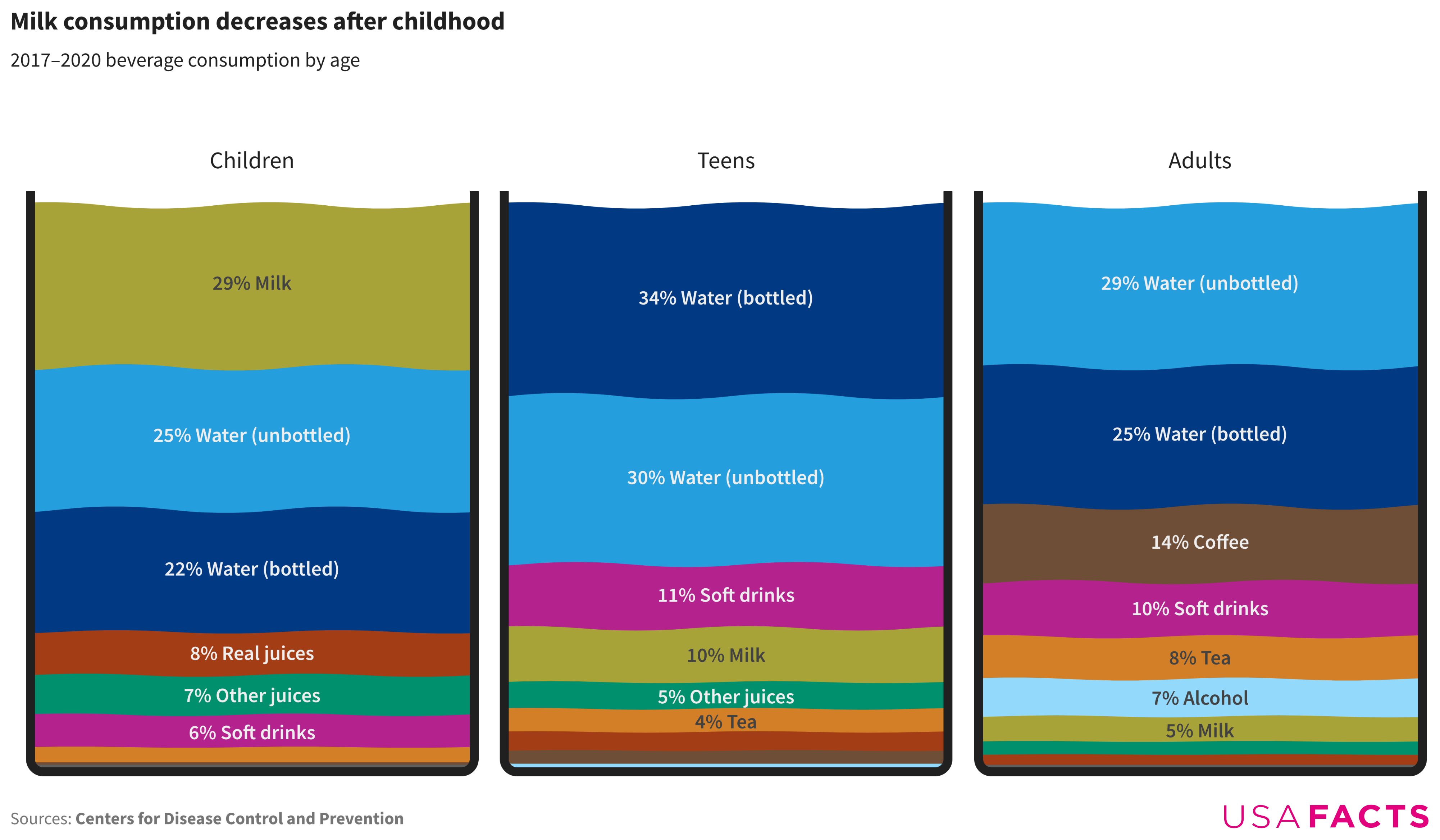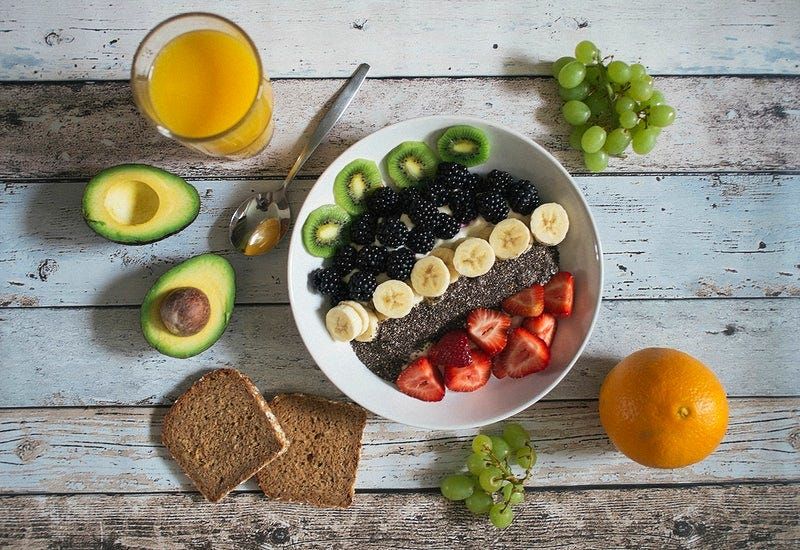
In a world buzzing with diet trends and conflicting nutritional advice, it often feels like we’re constantly being told what to avoid. The terms “junk food” get tossed around quite a bit, leading many to believe that anything delicious or easy to access must automatically be bad for us. We’re bombarded with messages about limiting fats, cutting down on sugars, and avoiding anything that doesn’t scream “health food” from the rooftops. But what if we told you that some of the foods you might be side-eyeing, or even dismissing as unhealthy, are actually nutritional powerhouses?
It’s time to flip the script on what we consider ‘junk.’ While it’s true that unhealthy dietary practices and a lack of physical activity are leading global risks to health, and we absolutely need to balance calorie intake with energy expenditure, the story isn’t always as simple as “good food, bad food.” Our understanding of a healthy diet is evolving, recognizing that it should include diverse, balanced, and culturally appropriate foods. This means looking beyond the surface and appreciating the core components of what we eat, rather than succumbing to common misconceptions.
So, get ready to challenge your assumptions! We’re diving deep into the unexpected health benefits of some everyday eats that often get a bad rap. These aren’t just tasty; they pack a serious punch when it comes to protecting against noncommunicable diseases (NCDs) like diabetes, heart disease, stroke, and cancer. Let’s uncover the true heroes hiding in plain sight, proving that eating well can be both surprising and incredibly satisfying. Prepare to be amazed as we reveal the first seven foods that are secretly super-good for you.
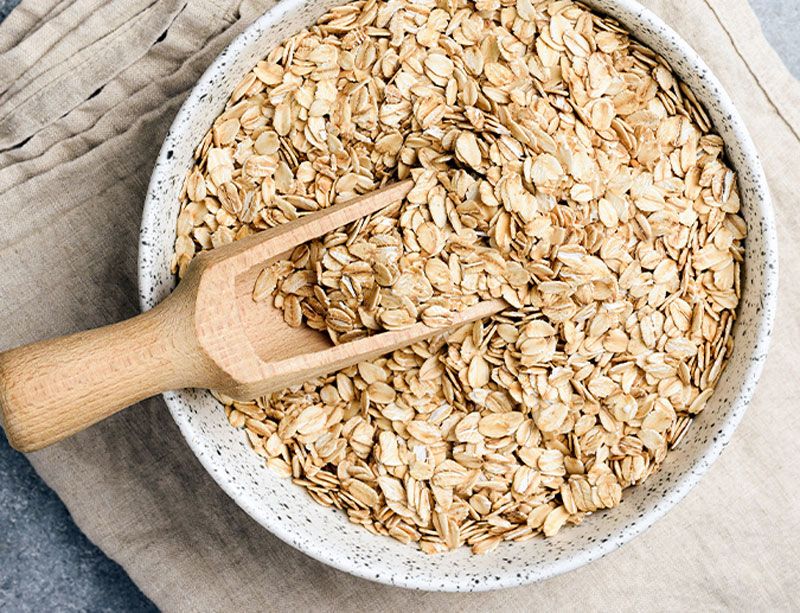
1. **Oats**When you hear “oats,” do you picture a bland, uninspiring breakfast, or perhaps those sugary instant packets promising convenience? Many often dismiss oats as merely a simple carb or, worse, associate them with heavily processed, sweetened versions that barely resemble their natural form. This perception can lead us to overlook a truly fundamental and remarkably beneficial food. But the reality is, oats are far from junk; they are a whole-grain champion, a cornerstone of a genuinely healthy diet.
The science behind oats is compelling, especially for heart health. As a registered dietitian with Top Nutrition Coaching specializing in women’s health highlights, “Oats are high in soluble fiber that lowers LDL (‘bad’) cholesterol and supports stable blood sugar.” This isn’t just a minor benefit; lowering LDL cholesterol is a critical step in preventing cardiovascular disease. Furthermore, a review in the European Journal of Nutrition backs this up, noting that oats “improve various risk markers for cardiovascular disease, plus lower total cholesterol, LDL cholesterol, and blood pressure.” These are significant claims for a food so often considered basic or boring.
Incorporating oats into your daily routine is surprisingly easy and incredibly rewarding. Forget the sugary packets; think natural, whole-grain goodness. One fantastic way to boost your fiber intake is to “start your day with a whole-grain cereal, like oatmeal.” To make it even better and add more nutrients, you can “top your cereal with berries, pumpkin seeds, or almonds.” These simple additions not only enhance flavor and texture but also contribute to a balanced, fiber-rich meal that keeps you feeling fuller for longer, aids digestive health, and helps stabilize blood sugar.
Read more about: Lost in the Legal Labyrinth: 11 States Where Bizarre Historical Laws Still Spark Head-Scratching in 2025
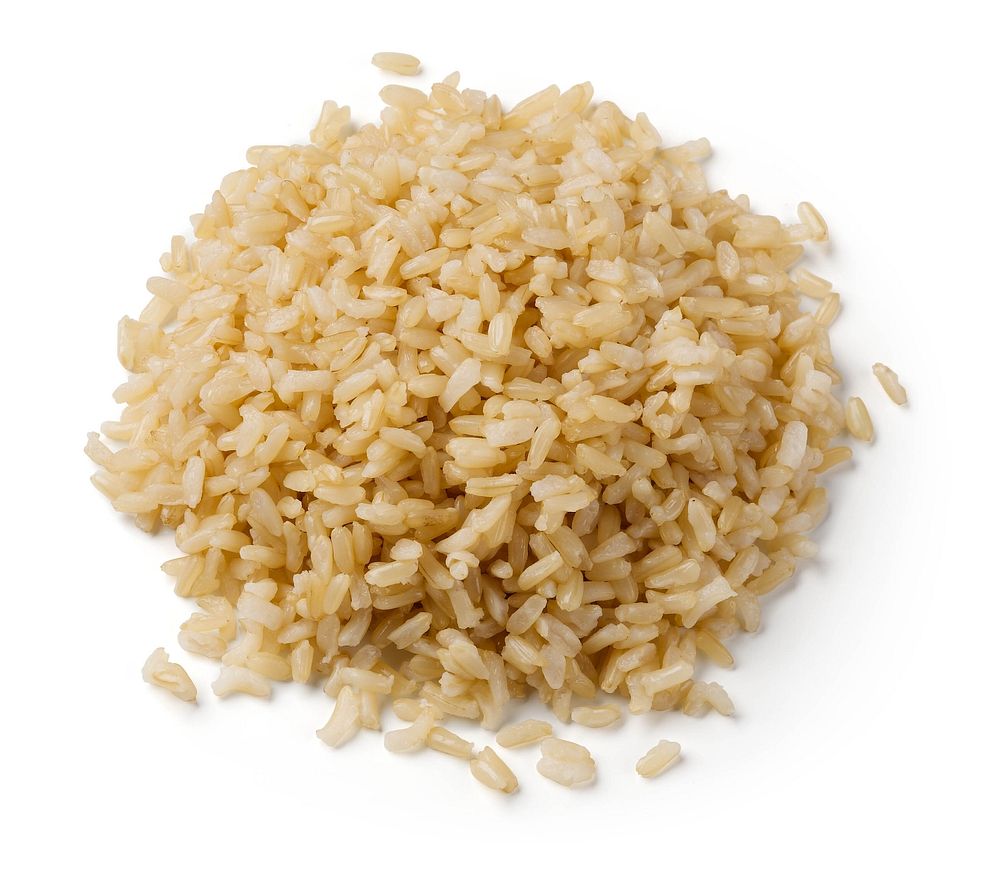
2. **Brown Rice**Brown rice, much like its oat cousin, often falls into the trap of being labeled as just another “carb” or a simple, unexciting side dish. In a culinary landscape that often favors highly processed grains or demonizes carbohydrates altogether, brown rice can be unjustly overlooked or even lumped in with less healthy options. Yet, this unassuming grain is a powerhouse of nutrition, a true whole grain that stands in stark contrast to its refined counterparts, offering substantial health benefits that defy any ‘junk’ food label.
The distinction between brown rice and white rice is crucial, and it’s where its surprising health benefits truly shine. Unlike white rice, brown rice retains its bran and germ, which are packed with fiber and essential nutrients. As Dr. Shenoy, a cardiologist with Manhattan Cardiology, explains, “Whole grains like brown rice help lower LDL cholesterol, reduce inflammation, and improve blood pressure.” These are critical factors in maintaining cardiovascular health. The consumption of whole grains is directly linked to a healthier heart, with research published in BMC Medicine finding that “higher consumption of whole grains was significantly associated with a lower risk of coronary heart disease.”
Embracing brown rice doesn’t mean sacrificing flavor or excitement in your meals. In fact, it’s an excellent opportunity to diversify your diet and enjoy a satisfying texture and nutty flavor. As a registered dietitian nutritionist based in San Francisco and the founder of Woking Balance Wellness, Diane Han, wisely suggests, “I often suggest switching things up if certain carbohydrate foods start to feel boring. There are plenty of whole grains to try that can keep your taste buds happy and curious.” Brown rice is a perfect candidate for this exploration. It can be a versatile base for stir-fries, a hearty addition to salads, or a nutritious side for virtually any meal, contributing significantly to your daily fiber intake and overall heart health.
Read more about: The 13 Most Valuable Relics and Artifacts Currently Missing from US Museums

3. **Avocados**Here’s a food that has perhaps seen the biggest shift in public perception, yet some lingering doubts remain for those wary of its high-fat content. For years, “fat” was the ultimate dietary villain, leading many to eye avocados with suspicion, despite their creamy texture and delicious flavor. This focus on total fat rather than the *type* of fat has sometimes unjustly categorized avocados in the mental “junk food” basket for the health-conscious. However, the truth is, avocados are a prime example of how certain fats are not just good, but essential for our well-being.
Avocados are undeniably rich, but it’s their “healthy fats” that make them shine. Diane Han, M.P.H., R.D.N., L.D., emphasizes this point, stating that foods like avocados “have higher ratios of unsaturated to saturated fats.” This distinction is incredibly important for heart health. These beneficial fats do more than just make food taste good; “Healthy fats not only help keep you fuller for longer, but they are also rich in antioxidants that support an anti-inflammatory environment,” an environment that is “key to keeping your cardiovascular system functioning smoothly.” This means avocados actively work to protect your heart and blood vessels.
Beyond the fruit itself, avocado oil is another unsung hero. Both Han and the registered dietitian specializing in women’s health recommend avocado oil as a heart-healthy cooking oil. It’s not just “rich in good fats,” but it also boasts “a higher smoke point than most plant-based cooking oils, which makes it perfect for sauteing.” This makes it an excellent choice for everyday cooking, allowing you to infuse your meals with healthy fats without compromising the integrity of the oil. Whether sliced into salads, blended into smoothies, or used as a cooking oil, avocados are a delicious and undeniably healthy addition to your plate, proving that not all fats are created equal.
Read more about: 14 Major Cooking Oils That Flat-Out Refused to Reach a High Smoke Point Safely: A Deep Dive for the Discerning Cook
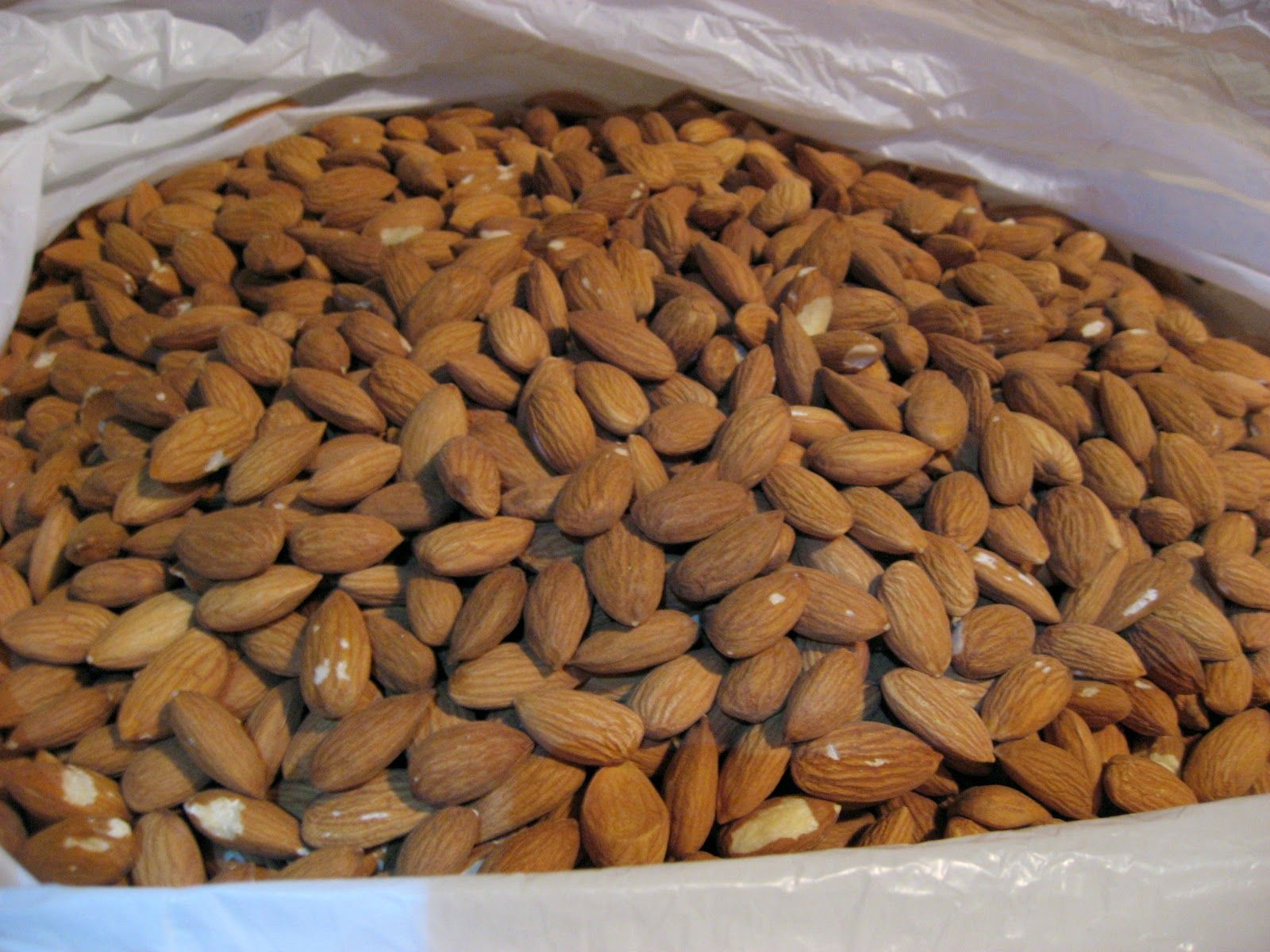
4. **Almonds**Often found alongside less healthy companions in trail mixes, coated in chocolate, or excessively salted, almonds can sometimes be unfairly associated with indulgent snacks. Their calorie density might also give some people pause, making them wonder if these tasty nuts truly fit into a healthy eating plan. This misperception overlooks the incredible nutritional value packed into each tiny almond, positioning them far from “junk” and squarely in the category of health-boosting superfoods.
Almonds are a nutritional powerhouse, brimming with components vital for heart health and overall well-being. As Dr. Padma Shenoy, a cardiologist with Manhattan Cardiology, succinctly states, “Almonds are high in fiber, unsaturated fatty acids, and antioxidants.” These three elements work in synergy to deliver remarkable benefits. The fiber aids digestion and satiety, the unsaturated fatty acids are crucial for cardiovascular health, and the antioxidants combat oxidative stress, a process linked to various diseases, including heart disease.
The benefits extend to serious cardiovascular protection. Dr. Shenoy notes that almonds, “if consumed in moderation, are associated with reduced risk of coronary heart disease and sudden cardiac death.” This is a powerful endorsement for a snack food. Given their nutrient density, moderation is key; experts suggest aiming for “just ¼ cup per day.” This small serving can be easily incorporated into your diet: try sprinkling almonds over your morning cereal or yogurt, or adding them to salads for a satisfying crunch and a boost of healthy fats and fiber, transforming a simple meal into a heart-smart feast.
Read more about: 10 Subtle Signs You’re Lacking Magnesium: What Your Body Is Really Telling You

5. **Peanuts**Peanuts, and perhaps even more so peanut butter, often walk a fine line in the public’s perception of healthy eating. They are ubiquitous in sugary candies, highly processed snack mixes, and unfortunately, many commercially available peanut butters are loaded with added sugars, unhealthy oils, and excessive sodium. This widespread association with less healthy products frequently leads to peanuts themselves being unfairly categorized as “junk food,” causing confusion about their true nutritional value. However, the humble peanut, in its natural form, is anything but junk.
In fact, peanuts are a nutritional force to be reckoned with, standing shoulder-to-shoulder with other celebrated nuts when it comes to health benefits. A review in Advances in Nutrition confirms that, “Like almonds, peanuts contain fiber and healthy fats that can reduce heart disease risk.” This combination of fiber and beneficial fats is crucial for maintaining a healthy cardiovascular system, helping to lower bad cholesterol and support overall heart function. For those aiming to improve their heart health, choosing natural, unsalted peanuts is a smart move.
The goodness of peanuts extends to peanut butter, provided you choose wisely. Diane Han, M.P.H., R.D.N., L.D., highlights that “peanut butter (and other nut butters)” are “great heart-healthy alternatives to cream cheese and butter.” When selecting peanut butter, look for brands with minimal ingredients – ideally just peanuts, and perhaps a touch of salt. This simple switch can transform a common spread into a valuable source of plant protein and healthy fats, allowing you to enjoy the rich, satisfying flavor while reaping significant health rewards, making your toast or sandwich surprisingly heart-friendly.
Read more about: Cracking the Code: 13 Restaurant Favorites We Thought We’d Never Replicate at Home

6. **Salmon**When one thinks of “junk food,” seafood like salmon probably isn’t the first thing that comes to mind. Yet, in many dining establishments, salmon can be presented in ways that seriously detract from its inherent health benefits – think deep-fried preparations, drowning in rich, creamy sauces, or served with excessive amounts of unhealthy fats. This culinary distortion can sometimes lead individuals to avoid it, or to believe that enjoying salmon is a decadent, less-than-healthy indulgence. However, the fish itself is a beacon of nutrition, a true superstar in the realm of healthy proteins.
Salmon is celebrated by nutrition experts for very good reason, especially its profound impact on heart health. Dr. Shenoy, the cardiologist, emphasizes that salmon is “an excellent protein choice for heart health,” notably because it is “high in omega-3 fatty acids, which have anti-inflammatory effects, reduce arrhythmia risk, and lower triglycerides.” These omega-3s are essential fatty acids that our bodies cannot produce, making dietary intake crucial. Their anti-inflammatory properties are particularly important, as chronic inflammation is a key driver of many NCDs.
To harness salmon’s full potential, preparation is key. Steaming or boiling are excellent methods to cook salmon, preserving its nutrients and avoiding the addition of unhealthy fats. Beyond fresh fillets, don’t overlook canned salmon; it can be a convenient and equally nutritious option. Interestingly, the context points out that “canned salmon with bones have more calcium than these products without bones,” offering an added benefit for bone health that many might not consider, further cementing salmon’s status as a versatile and incredibly valuable food.
Read more about: Beyond the Plate: 7 Genius Ways Celebrity Chefs Keep Their Secret Recipes Under Wraps
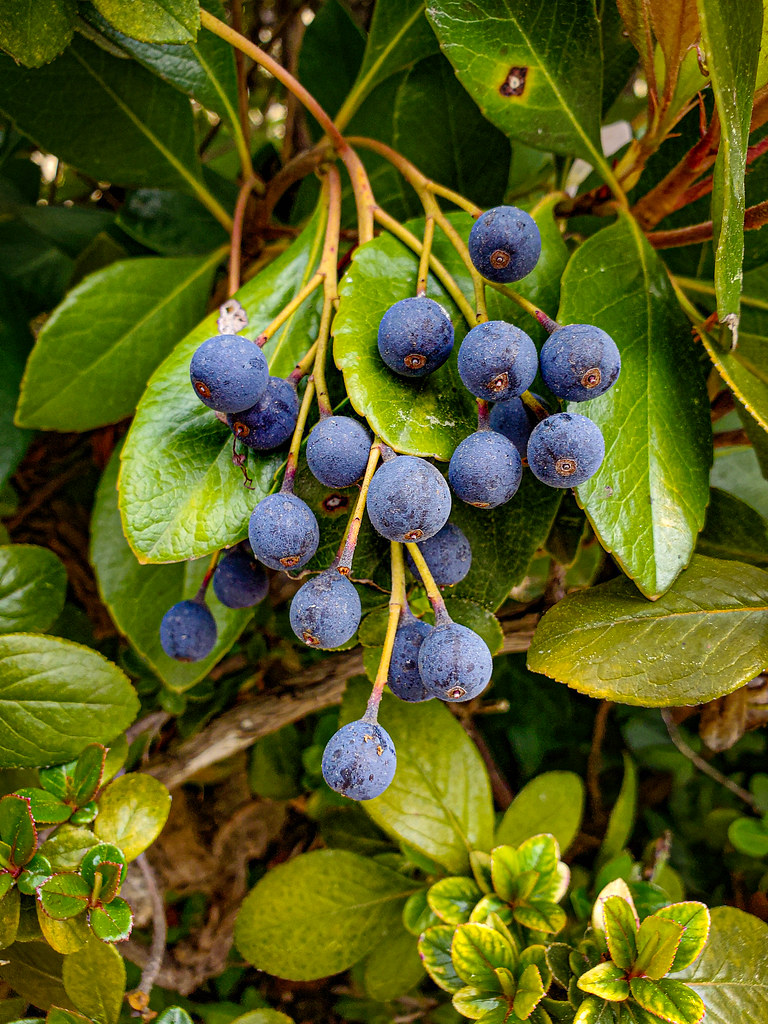
7. **Berries**Berries, with their vibrant colors and naturally sweet-tart flavors, are often incorporated into desserts, jams, and sugary beverages, which are undeniably unhealthy. This common association can, unfortunately, overshadow their incredible natural health benefits, leading some to perceive them as just another vehicle for sugar. However, when consumed in their natural state, berries are a far cry from “junk food”; they are miniature powerhouses, bursting with nutrients that are essential for optimal health and disease prevention.
These small fruits punch well above their weight when it comes to nutritional value. As a registered dietitian specializing in women’s health, explains, “Raspberries, blueberries, strawberries, and blackberries are ‘packed with antioxidants that reduce inflammation and support blood vessels.'” Antioxidants are crucial for fighting off harmful free radicals in the body, which can damage cells and contribute to chronic diseases. By supporting blood vessels, berries play a direct role in maintaining cardiovascular health, helping to keep our circulatory system functioning smoothly.
One of the most surprising and beneficial aspects of berries, especially in a world often wary of fruit sugar, is that “they are also incredibly low in sugar, which is a good thing because high blood sugar is a risk factor for heart disease.” This makes them a perfect snack or addition to meals for anyone looking to manage sugar intake while still enjoying something sweet and satisfying. You can easily “add fruit to your cereal or yogurt for sweetness,” or simply enjoy them fresh as a healthy snack. Choosing “fresh fruit and raw vegetables as snacks instead of sugary snacks” is a simple yet effective way to cut down on free sugars and boost your antioxidant intake simultaneously.”
Beyond the Hype: Six More ‘Junk’ Food Contenders Proving Their Worth, Featuring Blood Pressure-Balancing Produce, Cholesterol-Lowering Seeds, and Essential Plant Proteins.
After uncovering some truly surprising contenders in the first half of our journey, it’s clear that the lines between ‘health food’ and ‘junk food’ are often blurred by misconceptions and outdated dietary advice. We’ve seen how powerful whole grains, healthy fats, and antioxidant-rich fruits and proteins can be. But the revelations don’t stop there! Get ready to expand your mind and your palate even further as we shine a spotlight on six more everyday foods that might be lingering in your pantry or produce aisle, quietly waiting to deliver a hefty dose of wellness.
These next items continue to demonstrate that a healthy diet can be exciting, diverse, and full of foods you genuinely enjoy. They are champions in their own right, armed with potassium for blood pressure, unique fibers to lower cholesterol, and essential plant proteins to nourish your body. So, let’s dive into the next chapter of our nutritional revolution and discover the hidden superpowers of foods often relegated to the background, proving once and for all that sometimes, the best health hacks are right in front of us. Prepare to be amazed by these unsung heroes of your plate!
Read more about: Mastering the Art of No-Bake Desserts: 11 Foolproof Strategies to Achieve Perfect Setting Without Gelatin
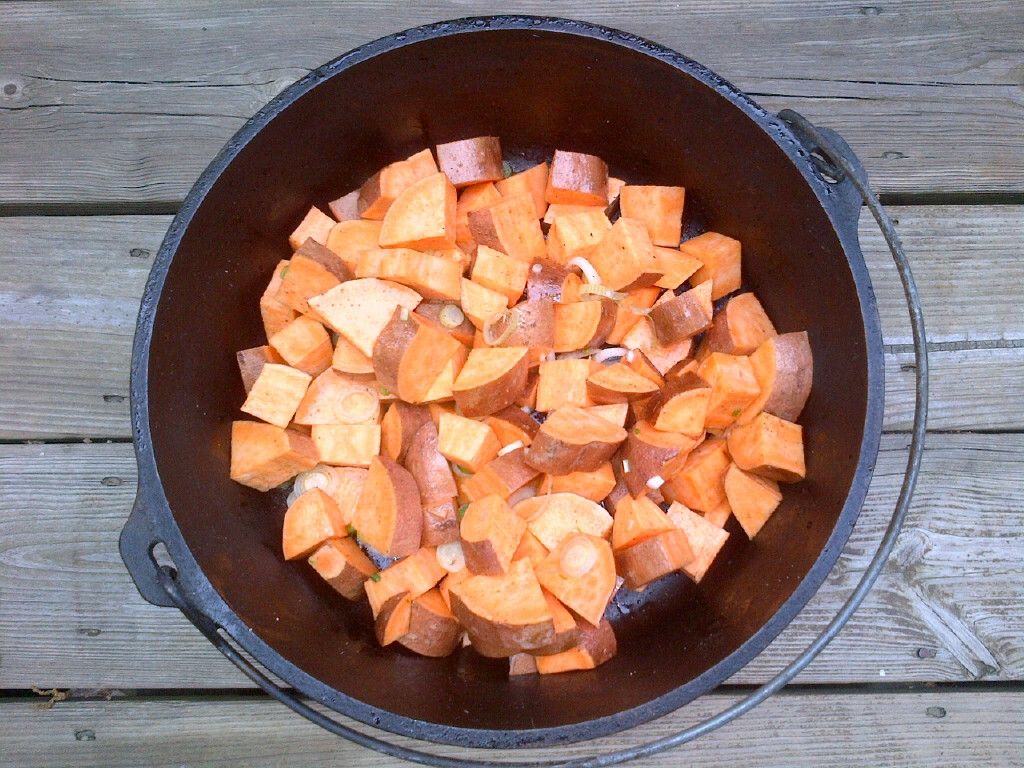
8. **Sweet Potatoes**Often mistakenly lumped into the same category as other starchy root vegetables, sweet potatoes can sometimes be overlooked in the quest for “superfoods.” They’re a staple in many cuisines, often prepared in indulgent ways that might lead some to question their health credentials. However, divorcing sweet potatoes from their sometimes-sugary preparations reveals a nutritional giant, packed with benefits that defy any ‘junk food’ label. This vibrant root vegetable is far more than just a carb; it’s a key player in promoting overall well-being.
The real magic of sweet potatoes lies in their impressive potassium content. As the registered dietitian with Top Nutrition Coaching specializing in women’s health, explains, “Sweet potatoes are high in potassium, which supports healthy blood pressure.” This isn’t just a minor perk; maintaining healthy blood pressure is crucial for preventing a host of cardiovascular issues. Research published in the journal *Hypertension* further reinforces this, confirming that “getting enough potassium is critical to preventing high blood pressure.” In a world where high sodium intake is a common problem, potassium acts as a vital counterbalance.
Beyond their blood pressure-regulating prowess, sweet potatoes contribute to a healthy, balanced diet in numerous ways. They are a fantastic source of dietary fiber, which aids digestion, helps you feel fuller for longer, and contributes to stable blood sugar levels. This makes them an excellent choice for managing weight and preventing the spikes and crashes associated with less healthy carbohydrate sources. Incorporating sweet potatoes into your meals is easy and delicious, whether roasted, mashed, or added to stews, offering a naturally sweet and satisfying boost to your nutrient intake.
Read more about: 14 Simple Ways to Transform Your Health with Regenerative Farming Products
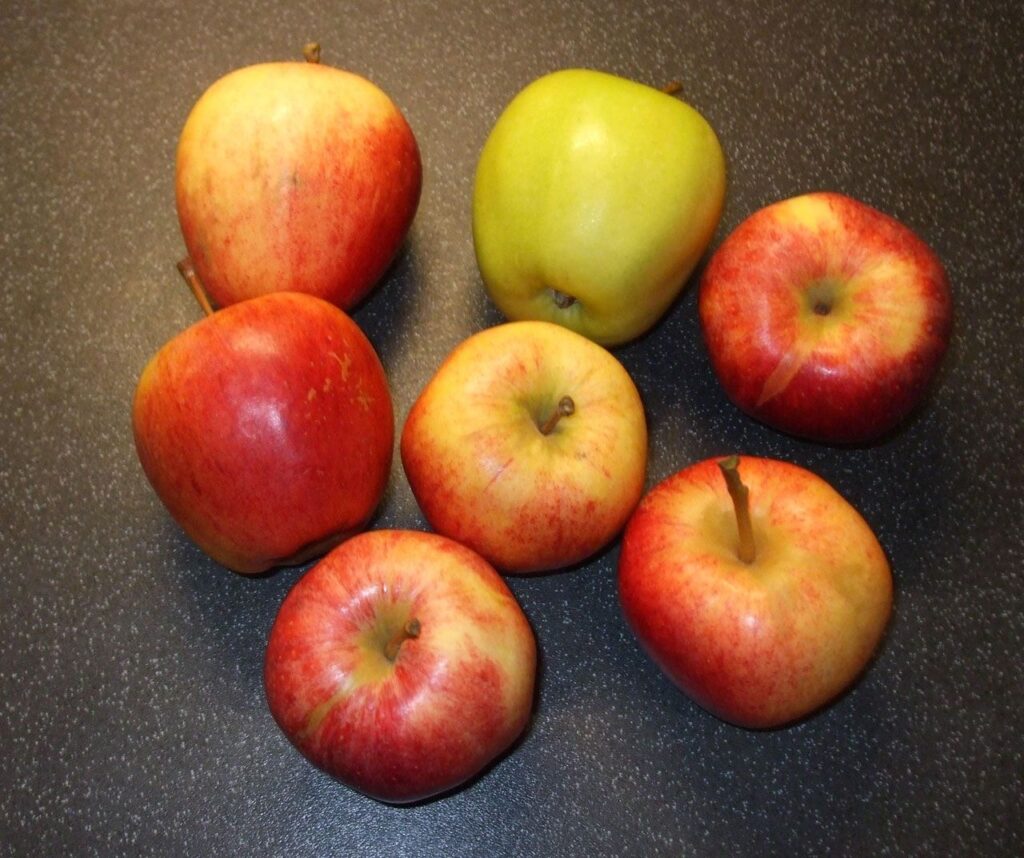
9. **Apples**”An apple a day keeps the doctor away,” goes the old adage, and while it might seem a bit simplistic, there’s a profound truth embedded within that familiar phrase. Despite their widespread availability and common status, apples can sometimes be seen as just a basic fruit, overshadowed by more exotic or trendier options. Their natural sweetness might even lead some to worry about sugar content, pushing them unfairly toward the ‘less healthy’ pile. Yet, the humble apple is a powerhouse of nutrients, actively working to safeguard your cardiovascular health.
Indeed, apples are much more than just a refreshing snack; they are packed with components vital for a healthy heart. Dr. Padma Shenoy, a cardiologist with Manhattan Cardiology, highlights their impressive profile: “Like sweet potatoes, apples provide blood pressure-lowering potassium—plus fiber and antioxidants to reduce oxidative stress, a process linked to the development of heart disease.” This combination is incredibly potent. Potassium helps regulate blood pressure, while fiber aids digestion and cholesterol management, and antioxidants combat cellular damage from free radicals, which are major contributors to chronic diseases.
Making apples a regular part of your diet is one of the easiest and most delicious ways to boost your health. Whether you enjoy them crisp and fresh, sliced into salads, or even baked without added sugars, they offer a satisfying crunch and a wealth of benefits. The fiber in apples also contributes to a feeling of fullness, which can be helpful for weight management. So, next time you’re looking for a quick and easy snack, remember that an apple isn’t just good for you; it’s a heart-healthy hero hiding in plain sight, proving that nature’s simplest offerings can be some of the most beneficial.
Read more about: Unpacking the Code: The 15 Most Controversial Hiring Practices Shaking Up Major Tech Companies Today
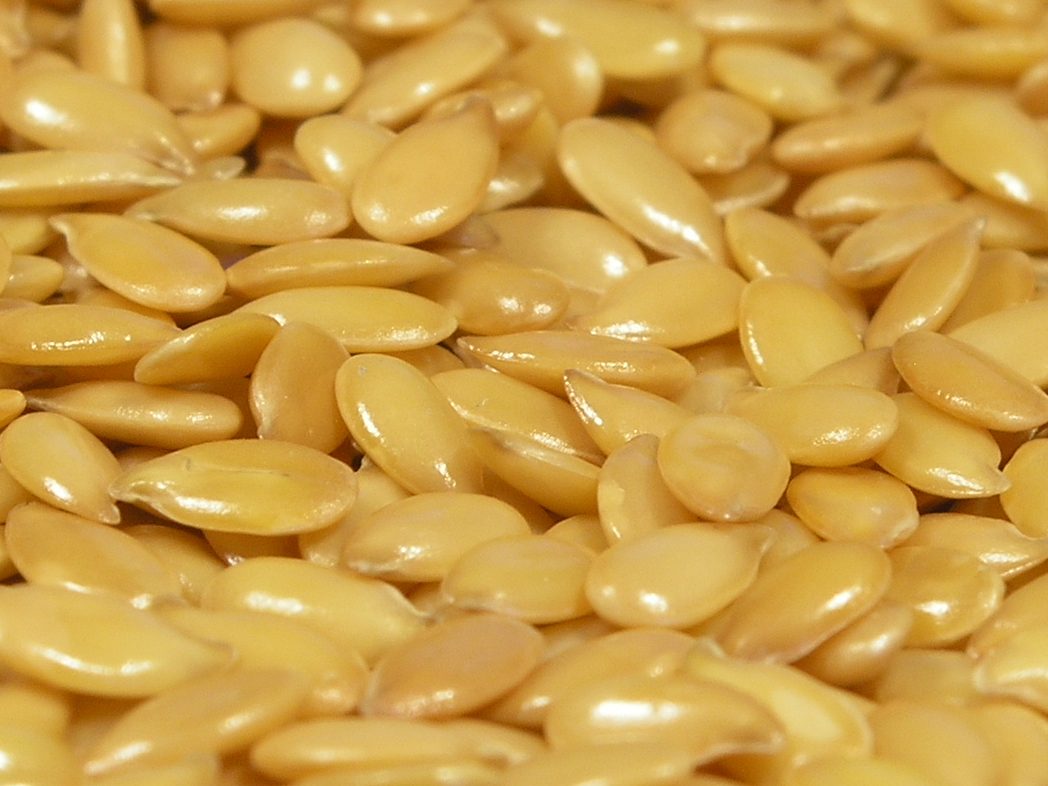
10. **Flax Seeds**These tiny, unassuming seeds often sit quietly in the background, perhaps sprinkled on artisanal bread or mixed into specialty health shakes. Their small stature and somewhat niche reputation might lead some to underestimate their profound health benefits, or even to view them as a ‘superfood fad’ rather than a genuine nutritional staple. However, flax seeds are far from a fleeting trend; they are a miniature marvel, brimming with essential nutrients that can make a significant difference in your heart health and overall well-being, proving that great things truly do come in small packages.
Don’t let their size fool you; flax seeds are packed with powerful compounds. The registered dietitian specializing in women’s health points out that “the fiber and omega-3s in flax seeds help lower cholesterol.” This dual action is incredibly valuable. The soluble fiber works to bind with cholesterol in the digestive system, preventing its absorption, while the omega-3 fatty acids, particularly alpha-linolenic acid (ALA), are renowned for their anti-inflammatory properties and their role in maintaining healthy blood vessels. This makes flax seeds a formidable ally against cardiovascular disease.
Incorporating flax seeds into your daily routine is surprisingly simple and versatile. Diane Han, M.P.H., R.D.N., L.D., a registered dietitian nutritionist, wisely recommends “sprinkling ground flax seeds over your oatmeal for a heart-healthy breakfast.” They can also be added to smoothies, yogurt, or even used as an egg substitute in baking (when mixed with water). Opting for ground flax seeds is often recommended as it makes the nutrients more accessible for digestion. A small daily addition of these tiny seeds can provide a substantial boost of fiber, healthy fats, and antioxidants, quietly working wonders for your heart.
Read more about: Master Your Recovery: 10 Science-Backed Strategies Professional Athletes Use to Bounce Back Faster
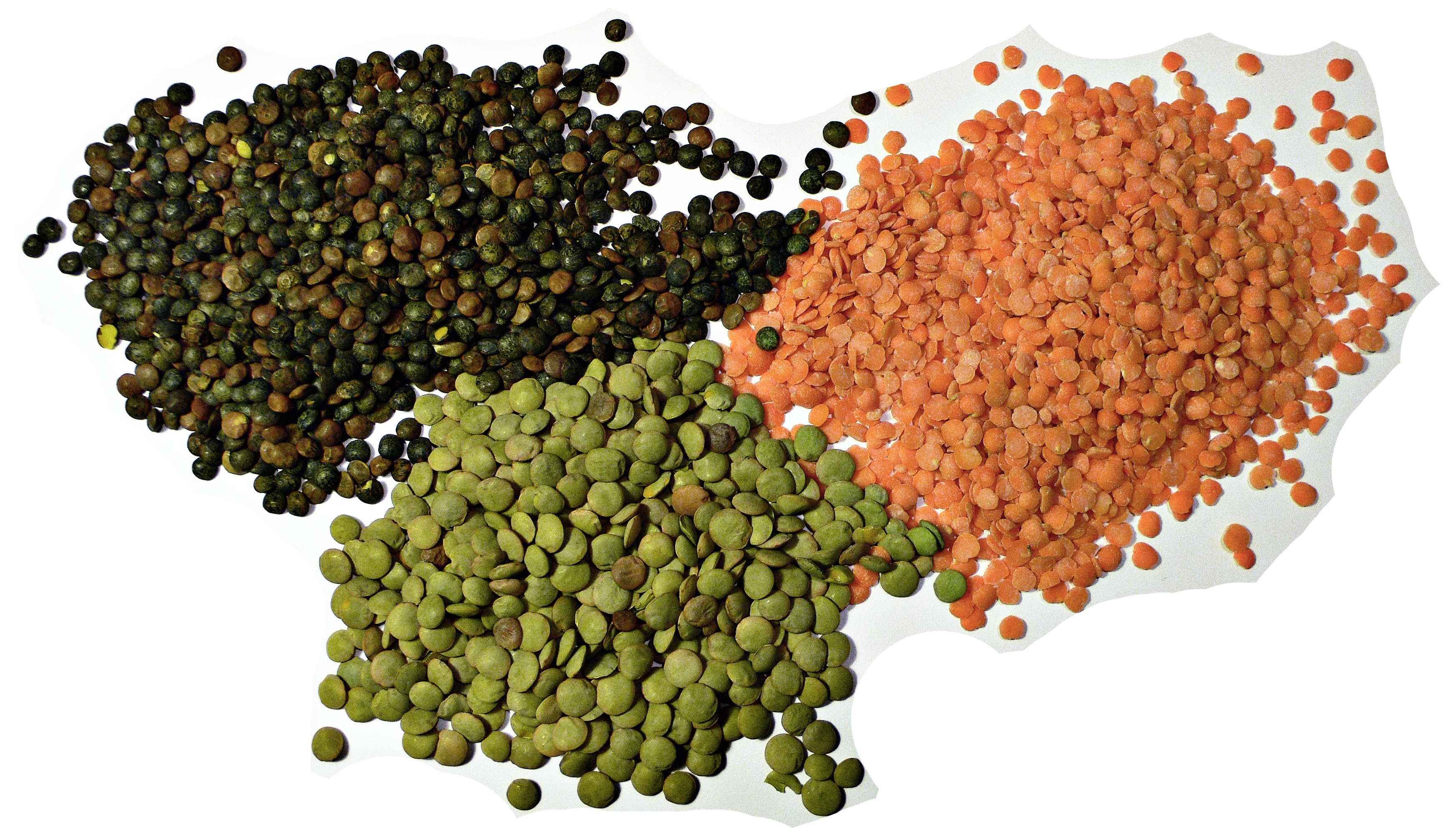
11. **Lentils**In many parts of the world, lentils are a dietary cornerstone, celebrated for their versatility and affordability. Yet, in some Western diets, they might be relegated to the realm of “side dish” or “health food” for vegetarians, perhaps seen as less exciting or less impactful than animal proteins. This perception often causes people to miss out on one of nature’s most efficient and beneficial sources of nutrition. But make no mistake, lentils are not just a humble legume; they are a nutritional powerhouse, essential for a truly balanced and heart-healthy eating pattern.
Lentils are an outstanding source of plant protein, a crucial factor in shifting dietary patterns toward better health outcomes. According to a 2024 study published in *The American Journal of Clinical Nutrition*, “most Americans eat a plant protein to animal protein ratio of 1:3. But the closer this ratio gets to 1:1, the lower your risk of cardiovascular disease and coronary heart disease.” Lentils offer an excellent, accessible way to help adjust this ratio, supporting both your heart and overall health by providing high-quality protein without the saturated fats often found in animal sources.
Furthermore, the registered dietitian specializing in women’s health emphasizes that lentils are “a great source of plant protein, as well as fiber to support cholesterol and blood sugar balance.” This rich fiber content is beneficial for digestive health and helps stabilize blood glucose levels, which is crucial for preventing diabetes and maintaining cardiovascular function. Brazilian research also underscores their value, finding that “eating beans (and by extension, other legumes like lentils) is associated with a decrease in cardiovascular disease risk factors.” Adding lentils to soups, stews, salads, or even making them a main dish is a delicious and impactful way to boost your protein and fiber intake.
Read more about: 15 Major Spices That Flat-Out Refused to Blend Well in the Kitchen
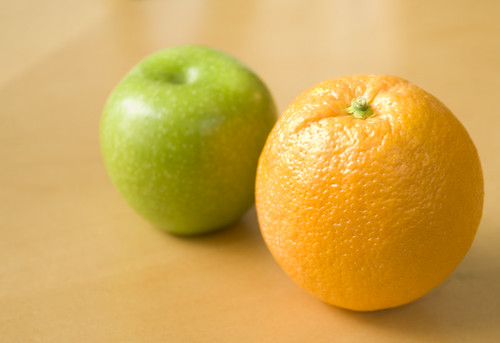
12. **Oranges**Oranges, with their bright color and refreshing zest, are a classic fruit that almost everyone enjoys. However, in an era where fruit juices are often demonized for their sugar content, and fresh fruit is sometimes seen as merely a source of “fruit sugar,” the profound health benefits of oranges might get lost in the noise. While their natural sweetness is undeniable, when consumed whole or as 100% juice without added sugars, oranges are far from a dietary foe; they are a vibrant ally for your heart and overall health, embodying the very essence of a healthy, natural food.
The benefits of oranges extend beyond a simple dose of vitamin C, making them a top-tier choice for heart health. Dr. Shenoy lists oranges, alongside apples and berries, as “a great fruit pick for heart health.” This isn’t surprising given their nutrient profile. Oranges, like their fruit counterparts, provide blood pressure-lowering potassium, a good amount of fiber, and beneficial antioxidants. These elements collectively work to protect your cardiovascular system, reduce oxidative stress, and help maintain healthy blood pressure levels, crucial for preventing noncommunicable diseases.
Moreover, while often debated, the science supports the positive impact of orange juice when chosen wisely. Research in *Critical Reviews in Food Science and Nutrition* found that 100% orange juice “can help improve several risk factors for heart disease.” The key is to select pure, unsweetened juice, much like you would choose whole fruits. Incorporating oranges into your diet, whether peeled and eaten fresh, added to salads, or enjoyed as a measured glass of 100% orange juice, offers a delicious and effective way to boost your intake of heart-protective nutrients.
Read more about: Mastering the Art of No-Bake Desserts: 11 Foolproof Strategies to Achieve Perfect Setting Without Gelatin
13. **Barley**When discussing whole grains, oats and brown rice often steal the spotlight, leaving other incredibly beneficial options like barley to sometimes be overshadowed. Its hearty, chewy texture might not appeal to everyone, and its perceived lack of ‘excitement’ could lead it to be dismissed as a less appealing choice. But for those looking to diversify their diet and reap a broader spectrum of whole-grain benefits, barley is a true treasure, a versatile grain that offers much more than meets the eye, making it a powerful, if sometimes overlooked, ‘junk’ food alternative.
Barley stands tall as a whole-grain champion, brimming with essential nutrients that directly contribute to heart health. As Diane Han emphasizes, “Whole grains are rich in fiber, antioxidants, and essential vitamins and minerals that support heart health.” Barley is no exception, packing a significant punch in these departments. Its soluble fiber, particularly beta-glucan, is well-known for its cholesterol-lowering effects, helping to reduce LDL (‘bad’) cholesterol and maintain stable blood sugar levels, both vital for cardiovascular well-being.
If your usual carbohydrate choices are starting to feel a bit monotonous, barley offers a fantastic solution. Han wisely suggests, “I often suggest switching things up if certain carbohydrate foods start to feel boring. There are plenty of whole grains to try that can keep your taste buds happy and curious.” Nutty, chewy barley is “one such pick,” providing a satisfying texture and distinct flavor profile that can reinvigorate your meals. It’s an excellent addition to soups, stews, salads, or even as a wholesome side dish, enriching your diet with a diverse array of heart-supporting nutrients and proving that healthy eating can, and should, be an adventure for your taste buds.
Read more about: The Evolution of Money: 13 Key Insights into Its Past, Present, and Future
So there you have it! From the familiar comfort of sweet potatoes and apples to the often-unsung heroes like flax seeds, lentils, oranges, and barley, we’ve journeyed through a world where ‘junk food’ gets a serious nutritional upgrade. It’s clear that many of the foods we might have once dismissed or viewed with suspicion are, in fact, bursting with powerful health benefits, especially for our hearts. The key takeaway isn’t to suddenly start deep-frying these items, but to embrace their natural forms and integrate them wisely into a balanced, diverse, and vibrant eating pattern. By looking beyond the labels and focusing on whole, nutrient-dense ingredients, we can all enjoy a more surprising, satisfying, and genuinely healthy lifestyle. Cheers to a delicious and healthier future!




